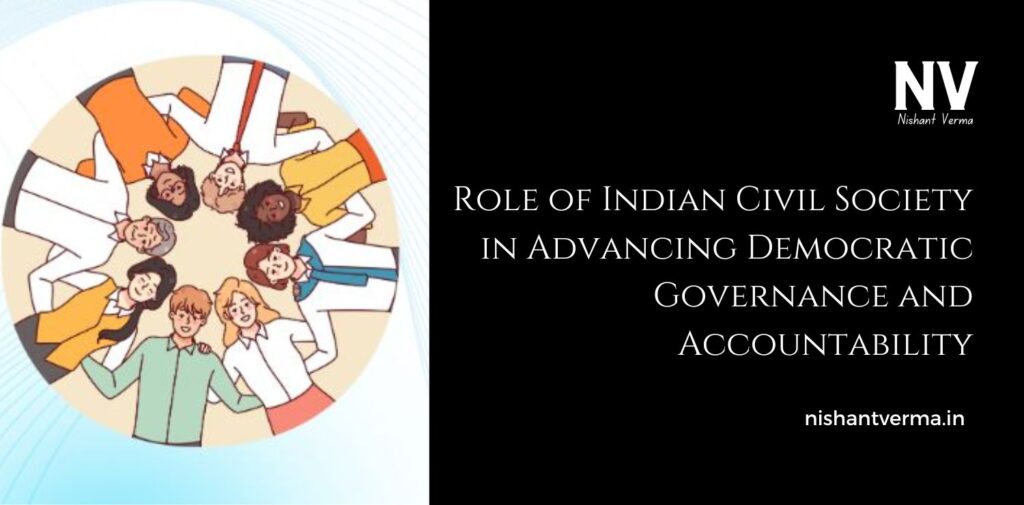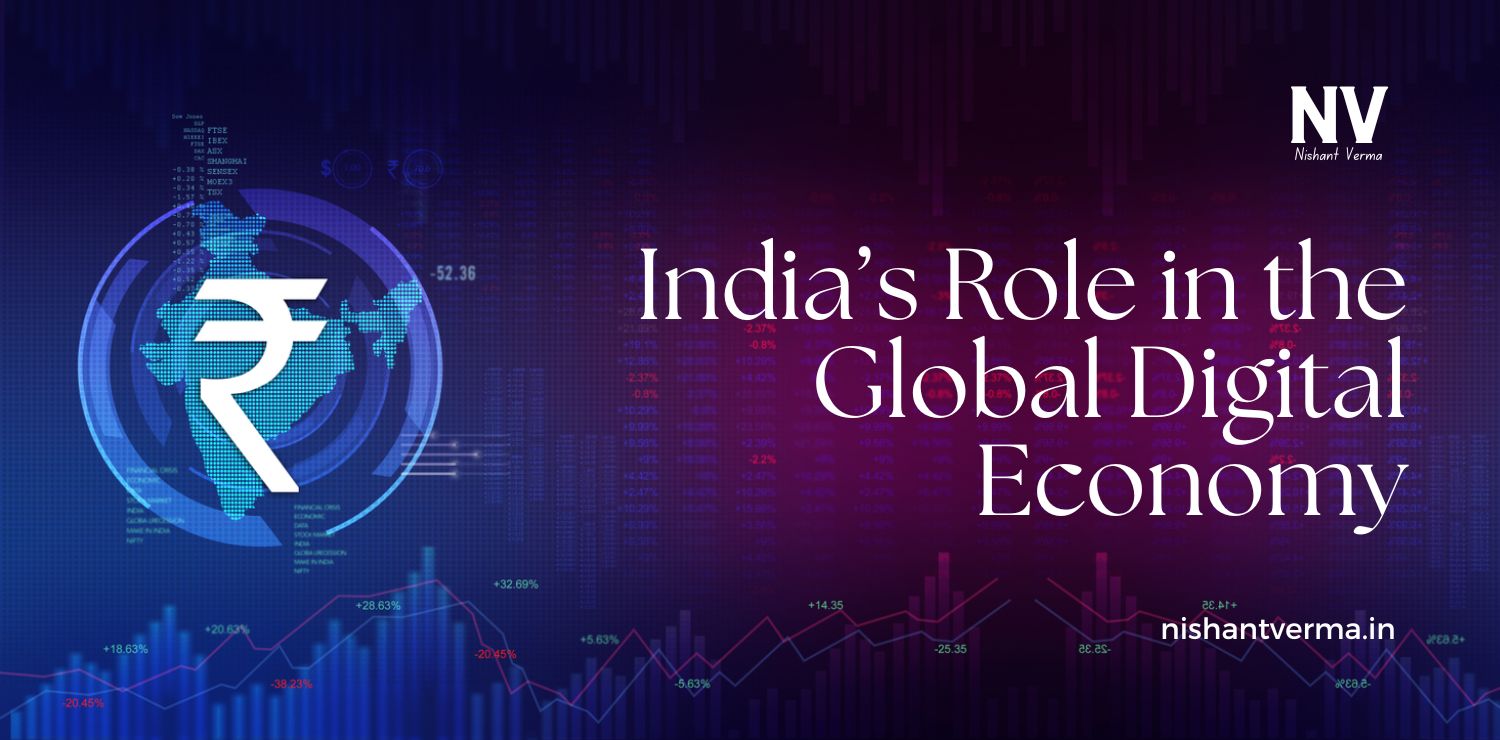India is the world’s largest democracy, and its democracy works through the active participation of citizens. One important part of this participation is called civil society. Civil society refers to the groups, organizations, and individuals who work to improve society without directly being part of the government. These can include non-governmental organizations (NGOs), social activists, journalists, and ordinary citizens who come together to make their voices heard.
In this article, we will explore how civil society in India has played an important role in advancing democratic governance and ensuring accountability in the government.
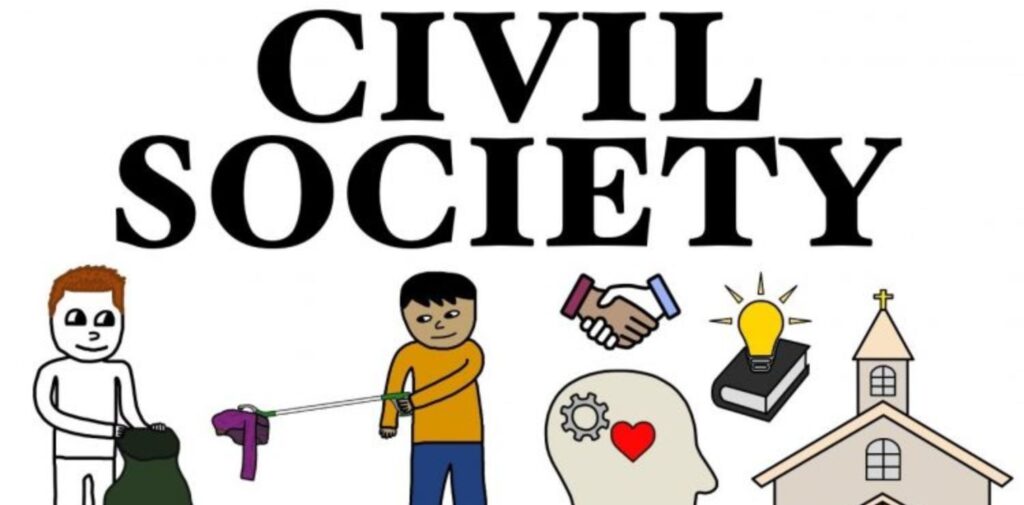
What Is Civil Society?
Before we understand its role in democracy, let’s first define what civil society means.
Civil society is made up of the people and organizations that are not part of the government but still work to influence social, political, and economic issues. These groups work together to make sure that the government works for the people. They help in various ways like:
- Raising awareness on social issues.
- Holding the government accountable for its actions.
- Helping in community development.
- Ensuring justice for all.
In India, civil society includes people who speak up for human rights, fight against corruption, and work towards social equality. These groups help in making democracy stronger and ensure that the government remains responsible for its actions.
Civil Society and Democratic Governance
Democratic governance means that the government is responsible to the people and must work in their interest. In a democracy, the government must listen to the people and answer for its decisions. Civil society plays a huge role in ensuring that governments remain democratic and work fairly for all citizens.
- Voice of the People: In a democracy, the government is meant to represent the voice of the people. However, many times, the government might ignore certain groups or make decisions that do not reflect the needs of the people. This is where civil society steps in. NGOs, social groups, and activists raise the issues that might not be heard in mainstream politics. For example, civil society organizations work to bring attention to issues like poverty, education, women’s rights, and environmental protection. By doing this, they help ensure that the government listens to everyone, not just powerful groups.
- Advocacy and Awareness: Civil society groups raise awareness about important issues. They inform the public about their rights and encourage them to participate in democratic processes like voting and attending public meetings. This creates an informed citizenry that can make the government more responsive. For instance, many NGOs in India work to educate people about elections and how to vote. This empowers citizens to make better decisions when they go to the polls, leading to a stronger and more active democracy.
- Policy Change: Civil society organizations also work towards policy change. They research and highlight issues that require government action. Through campaigns, petitions, and protests, they influence the government to introduce new laws or change existing ones. One good example of this is the Right to Information (RTI) Act, which allows citizens to ask the government for information about its activities. This was passed due to the hard work of civil society activists who fought for transparency in government functioning.
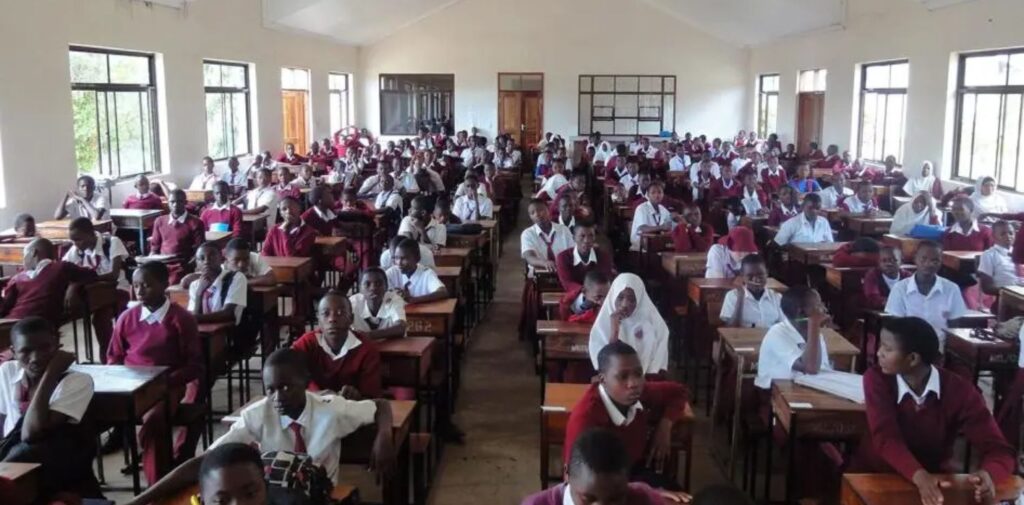
Civil Society and Accountability
Accountability means that the government is responsible for its actions and decisions. In a democracy, it is important that the government answers for how it uses the people’s money and power. Civil society plays a crucial role in making sure that the government remains accountable.
- Fighting Corruption: One of the biggest challenges that any country faces is corruption, where people in power misuse their position for personal gain. Civil society helps in fighting corruption by exposing corrupt activities and demanding action. For example, many social organizations in India have worked to expose corruption in government programs, ensuring that the money meant for public welfare is spent properly. Civil society also helps to raise awareness about how corruption harms society and encourages citizens to report corrupt activities. A major movement in India that brought attention to corruption was the Anna Hazare anti-corruption movement in 2011. Anna Hazare, a social activist, and his followers demanded a stricter law to punish corrupt government officials. This movement inspired millions of people and forced the government to take action against corruption.
- Transparency in Government Actions: Civil society works towards making government actions transparent. Transparency means that the government should share information about its decisions with the public. Civil society groups help in demanding that the government be open about its work and how it spends public money. The Right to Information Act (RTI) mentioned earlier is a direct result of civil society’s efforts to bring transparency to the functioning of the government. Through RTI, citizens can ask for information about government decisions, which forces the government to be more open and honest in its work.
- Monitoring Government Programs: Civil society organizations also monitor how government programs are implemented. They check if the money and resources meant for various welfare programs like healthcare, education, or rural development are being used properly. For example, in rural India, many NGOs work to make sure that government welfare programs are reaching the poor and marginalized communities. They also help to ensure that the programs are being carried out fairly and that no one is left out.
- Fighting for Human Rights: Civil society in India has been very active in fighting for human rights. These groups raise their voices against discrimination, violence, and injustice. They also demand that the government take responsibility for protecting the rights of all citizens, especially the most vulnerable. Civil society groups have been at the forefront in fighting for women’s rights, Dalit rights, and the rights of minority communities. They work to ensure that everyone, regardless of their background, is treated equally and with dignity.
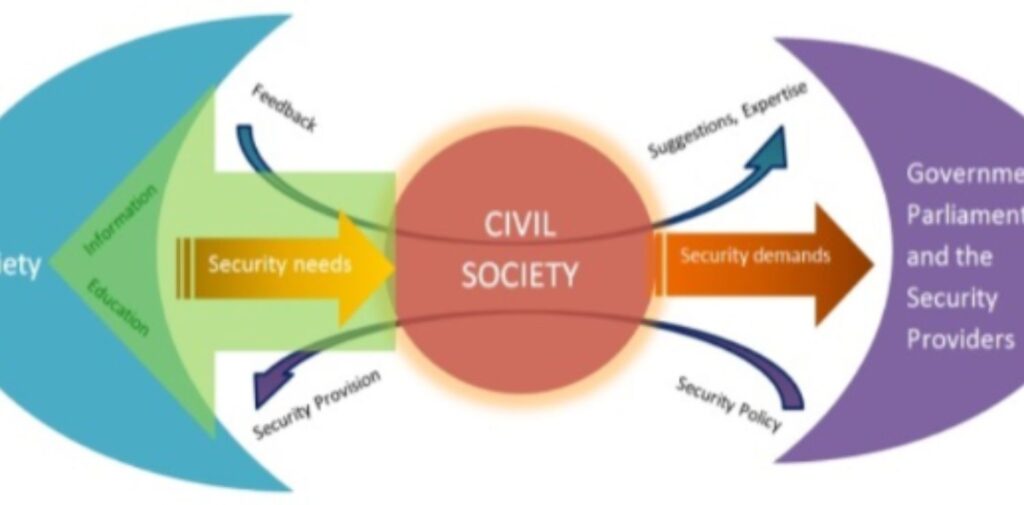
Examples of Civil Society’s Impact
Here are a few examples of how civil society in India has made a difference in advancing democratic governance and ensuring accountability:
- The Narmada Bachao Andolan (NBA): This movement, led by social activist Medha Patkar, was formed to protest against the construction of large dams on the Narmada River. The people living in the area were being displaced, and their rights were being ignored. The NBA played a key role in getting the government to reconsider the project and address the rights of the affected people.
- Bhopal Gas Tragedy: After the Bhopal gas tragedy in 1984, where thousands of people were killed by a poisonous gas leak from a factory, civil society groups pushed the government to hold the responsible company accountable. They also fought for the rights of the victims, many of whom were denied compensation. The efforts of civil society led to some justice being served and greater awareness about industrial safety.
- Women’s Empowerment and the #MeToo Movement: Civil society groups in India have been fighting for women’s rights for many years. In recent times, the #MeToo movement has gained momentum, with women coming forward to share their stories of harassment and demand accountability. Civil society groups have supported these women and helped bring attention to the need for stronger laws and policies to protect women.
Conclusion: The Power of Civil Society
In India, civil society plays a vital role in advancing democratic governance and ensuring that the government is accountable to its people. By raising awareness about issues, fighting for transparency, monitoring government programs, and protecting human rights, civil society ensures that India’s democracy stays strong and works for everyone.
Civil society in India has the power to make change happen. Through the combined efforts of citizens, social groups, activists, and organizations, India can continue to build a fairer, more just, and more transparent society for all its people. As citizens, we all have a role to play in supporting civil society and making our democracy even stronger!

